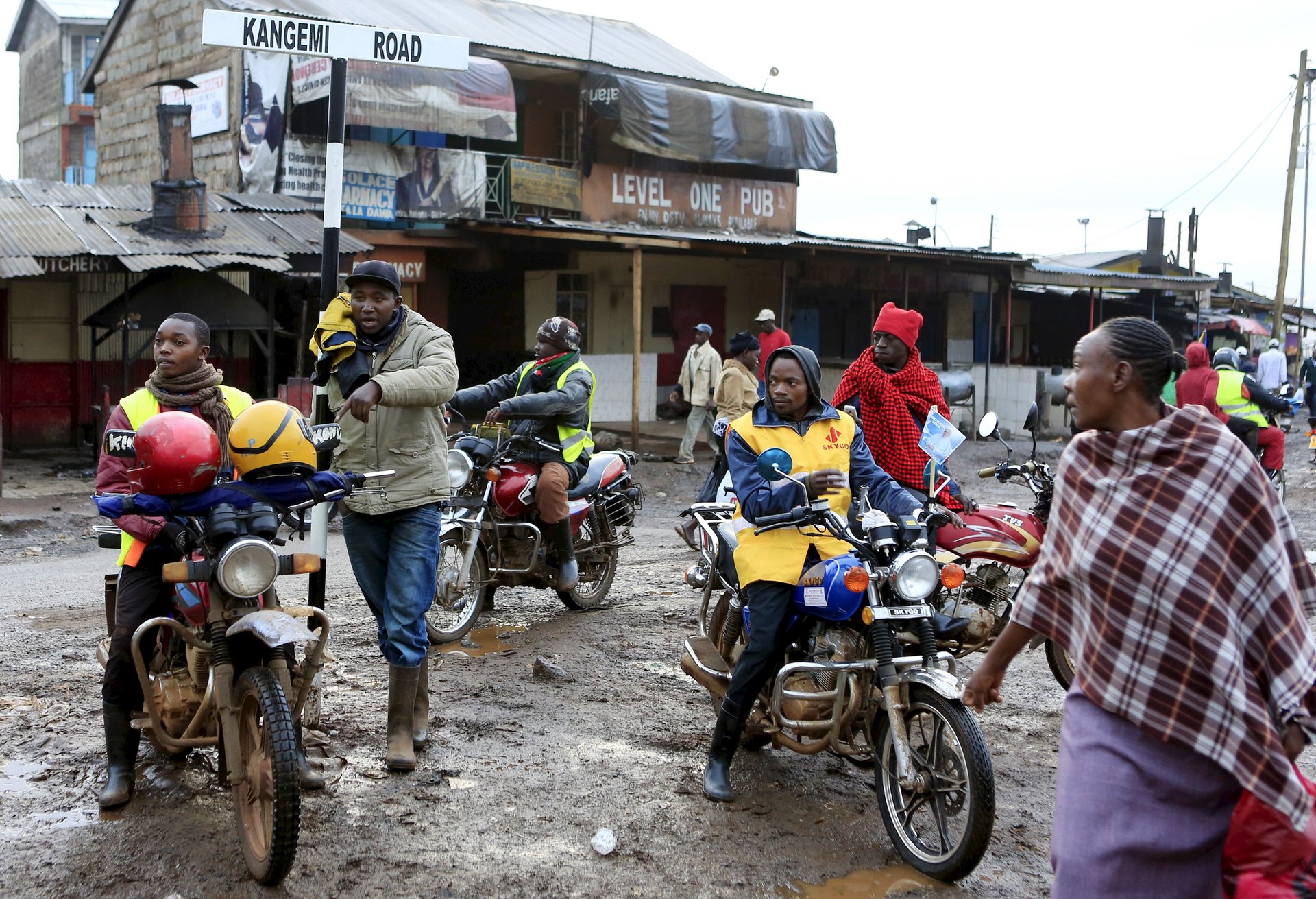The value of motorcycle public transport will more than double in Africa
Motorcycle taxis, locally known as boda bodas in Kenya and Tanzania or okada in Nigeria, are set to become a significant mode of transportation in Africa in the next five years, a new report shows.


Motorcycle taxis, locally known as boda bodas in Kenya and Tanzania or okada in Nigeria, are set to become a significant mode of transportation in Africa in the next five years, a new report shows.
The study, by global market consultancy TechSci Research, projects that the two-wheeler market in Africa will more than double, from $4 billion in 2015 to more than $9 billion in 2021. The growth is partly due to the absence of reliable public transportation systems, increasing urbanization that is fueling congestion and traffic across cities, an influx of cheap motorcycles from Indian manufacturers, not to mention the availability of easy financing and maintenance solutions.
The swell in growth is also explained by the low purchasing power among consumers to buy vehicles: in 2015, approximately 1.55 million new vehicles were sold or registered in Africa (pdf).
Tanzania and Nigeria are among the most lucrative markets in the continent, followed by Kenya, Algeria, Uganda, Egypt, Morocco, Angola and Ethiopia. In 2015, these countries accounted for a cumulative market share of over 45% in volume terms compared to the rest of the continent. By 2021, TechSci forecasts that share will surpass the 50% mark.
Karan Chechi, the company’s research director, told Quartz that the growth in two-wheeler business in these countries is linked to the “increase in per capita income, growing employment opportunities, developing infrastructure and vast reserves of natural resources” in these countries.
Tanzania, which has about one million registered boda bodas, is set to register an annual growth of 4%, the fastest growth among the top four countries. The spurring in growth is also prevalent in Kenya, where the government has extended tax waivers to both the imports of motorcycles and also to local assembly plants. Whereas Kenya didn’t have any assembly plants five years ago, there are now 21 assemblers in the country, according to the East African newspaper. The removal of the taxes was meant as part of an effort to improve sales and reduce job losses.
South Africa’s market, the top in the continent, will grow the slowest at around 2% annually, owing to the homologation rules introduced by the government in 2013. The implementation of the directive saw the restriction of some of the motorcycles with certain emission criteria, produced by Japanese importers like Honda, Yamaha and Suzuki, from the South African market.
Compared with Nigeria, Tanzania, and Kenya, the average selling price of a two-wheeler is highest in South Africa, the TechSci report shows too. This is because a substantial volume of two-wheelers sold in South Africa pertains to either premium motorcycle and high-end scooters.
To support the growing demand, Chechi says, “African governments should focus on establishing two-wheeler production or assembly plants so that the dependency on imports can be reduced.” This, he says, would decrease the prices of motorcycles and spur the growth of boda bodas as a key contributor to employment opportunities.